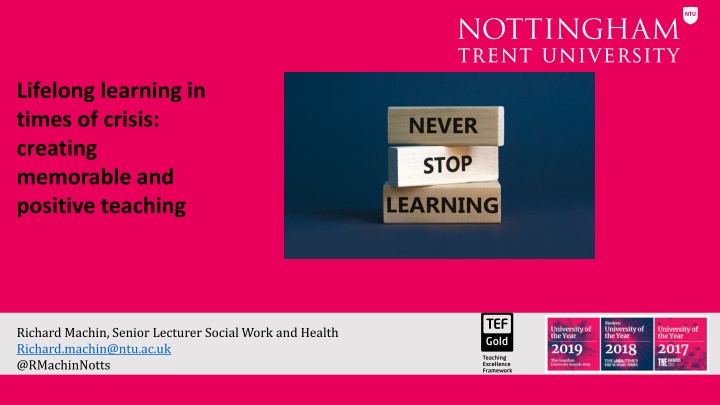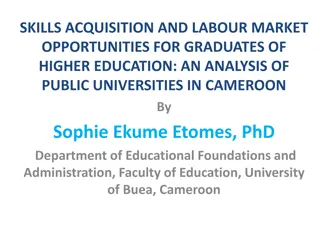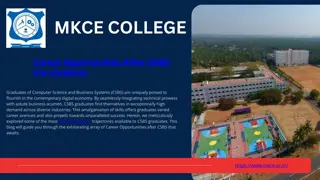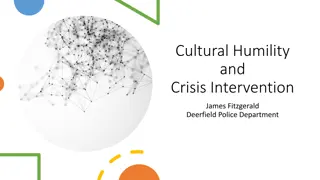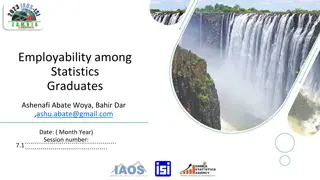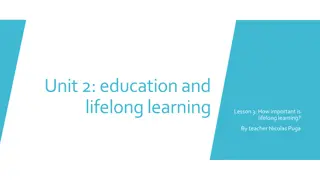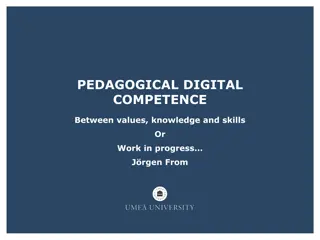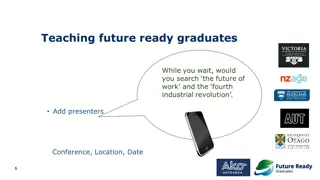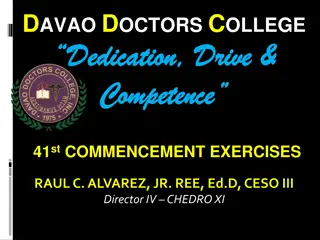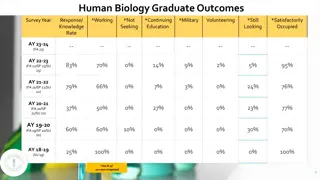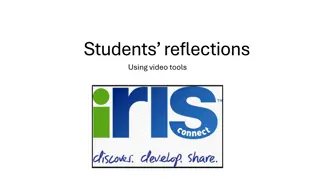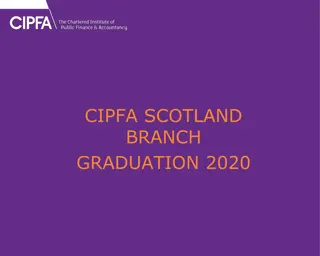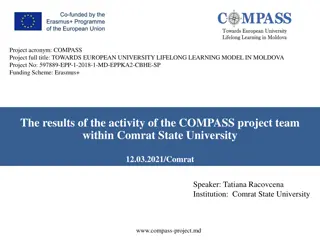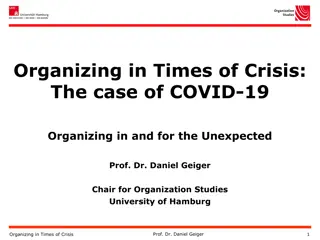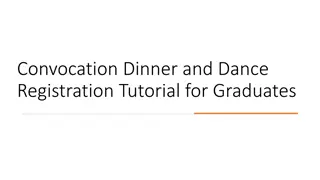Creating Resilient Graduates: Pedagogical Model for Lifelong Learning in Times of Crisis
In times of instability, educators must help students understand societal events, build resilience, skills, and emotional intelligence. This presentation by Richard Machin outlines a pedagogical model focusing on professional experience, research, and lived experience to prepare graduates for challenges. The model emphasizes the importance of educators' professional journey, expertise, and ethical dilemmas in enhancing student learning and societal impact.
Download Presentation

Please find below an Image/Link to download the presentation.
The content on the website is provided AS IS for your information and personal use only. It may not be sold, licensed, or shared on other websites without obtaining consent from the author.If you encounter any issues during the download, it is possible that the publisher has removed the file from their server.
You are allowed to download the files provided on this website for personal or commercial use, subject to the condition that they are used lawfully. All files are the property of their respective owners.
The content on the website is provided AS IS for your information and personal use only. It may not be sold, licensed, or shared on other websites without obtaining consent from the author.
E N D
Presentation Transcript
Lifelong learning in times of crisis: creating memorable and positive teaching Richard Machin, Senior Lecturer Social Work and Health Richard.machin@ntu.ac.uk @RMachinNotts
Introduction Richard Machin, Senior lecturer in Social Work and Health, Nottingham Trent University. Specialise in social policy, teach across a range of undergraduate (Health and Social Care, Social Work) and postgraduate courses (Public Policy, Public Health). Research interests: impact of social policy on vulnerable groups (recent projects include analysis of social welfare policy for displaced Ukrainians in the UK, experience of the social security system for people with mental health problems, impact of COVID-19 on local authorities). Practice background managing local authority advice services.
Themes for this presentation In times of extraordinary instability it is vital for educators to try and make sense of momentous events, to consider their cause/impact, and how they influence and often harm lives. This presentation sets out a pedagogical model which allows students from a wide range of courses to explore the ways in which societal events affect them on a personal level and equips them to be resilient, skilled, and emotionally intelligent graduates. I draw upon a successful submission made to Nottingham Trent University s Vice- Chancellor s Award for Excellence in Teaching. The model has a broad, cross-discipline relevance and applicability. It recognises that to understand/respond to local, national, and international crisis educators and students need to establish a career identity, engage with research, and reflect on lived experience.
Creating resilient, skilled and emotionally intelligent graduates: the pedagogical model Pedagogy underpinned by professional experience and expertise Pedagogy informed by research and scholarly activity Resilient, skilled, and emotionally intelligent graduates Pedagogy inspired by the lived experience Machin, R. (2023). Facilitating emotionally resilient learning in times of crisis. Working Paper Series, Meeting New Challenges in Education, Nottingham Institute of Education, Nottingham Trent University. https://www.ntu.ac.uk/__data/assets/pdf_file/0018/2022066/Issue-1.pdf
1. Pedagogy underpinned by professional experience and expertise Focus on the importance of the professional experience of the teacher, their expertise and how this enhances learning/student experience. It recognises that to equip students with the skills needed in contemporary society, educators must convey a sense of authority coupled with integrity. Requires reflection on the professional journey, the experiences and people that have shaped you, the ethical dilemmas that you have faced, your achievements, the situations where you have fallen short, and areas where further development is required. Developing a career identity is an ongoing process and fosters stimulating discussion points. Professional knowledge and pedagogy are inextricably linked: Loughran (2019, p532) It is the pedagogical reasoning underpinning their practice that shows the richness of what they know, how they have come to know it, and why it works in practice in their context. Banks et al (2005) emphasise the importance of subject knowledge rating this as highly as the processes of teaching. Lunenberg and Korthagen (2009) argue that curriculum development should embrace experience, theory, and practical wisdom.
2. Pedagogy informed by research and scholarly activity Two main aims: to join the dots between complex ideas and the real-world, and to create enquiring and critical minds. As both students and future professionals it is vital to understand not all knowledge is already known; the workplace demands engagement in evaluation, both of practice and the working environment itself. Brew (2006, p31) urges academics to see themselves as knowledge builders Healey (2005) suggests that there can be challenges around the conceptualisation of research in teaching, it is most meaningful when students are actively involved, in inquiry-based learning . This element of the model draws upon Advance HE S research-informed principles (2017): Research-led: students are taught discipline specific research findings Research-oriented: students are taught research methodologies Research-tutored: student learn through discussion and debate Research-based learning: students learn through active research
3. Pedagogy inspired by the lived experience We can only understand the impact of the turbulent times that we are living in when we recognise the experience of those who are socially excluded. There is a risk that both teaching and research can overlook, or not focus sharply enough, on human experience. For students the lived experience often provides the link between theory and practice; issues such as discrimination, safeguarding, or mental health only have true meaning if they are explored with reference to real lives. This takes on an extra level of importance as students bring their own lived experience to the learning environment; it adds a richness to the pedagogy but also demands sensitivity and careful planning. The lived experience is critical in developing resilient and compassionate professionals. Valuing the lived experience in a professional context enhances each interaction with a service user, influences the culture within organisations, and can positively influence the way in which services are developed/delivered.
Discussion and questions
Discussion and questions Final reflection: Aspiration for the model to create a ripple in the pond . Educators utilise their expertise and networks, act as a catalyst for change. Create a safe environment for students to reflect on their own position in society and lived experience of service users. Endpoint is for students to graduate and insert a positive influence on professional practice; positive interactions with citizens, push culture change in organisations where professionals are sensitive, inquisitive and solution focused. Starting questions: How can the model be developed and refined? Similarities/differences to other pedagogical models What are the limitations of the model and challenges in delivering it? Could the model be applied effectively to your area of teaching? Opportunities for joint working.
